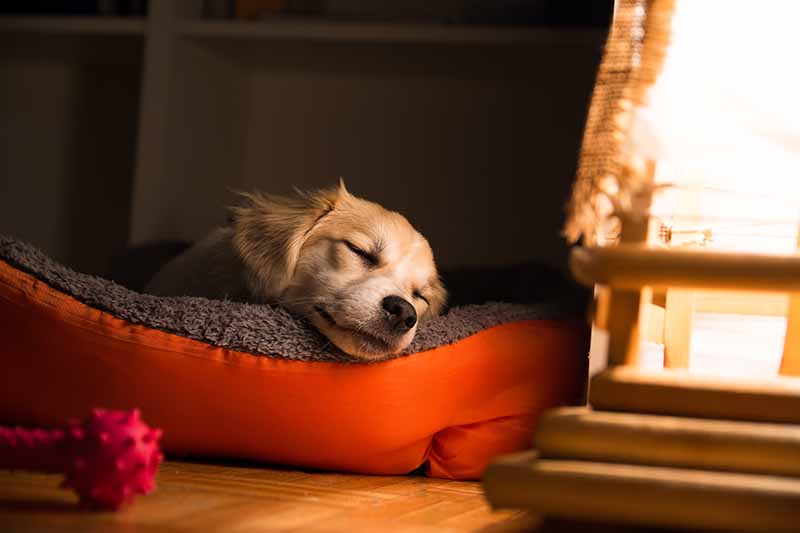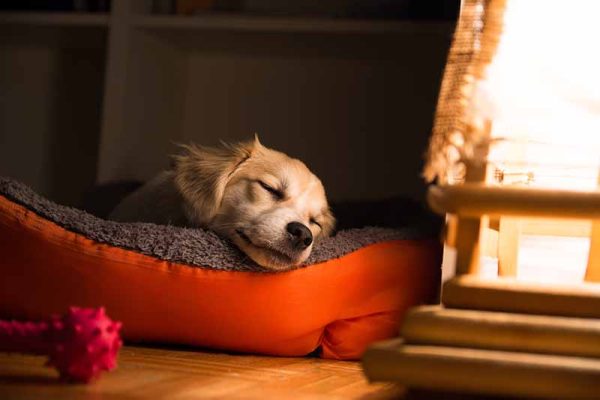It’s a common question among dog owners—should I leave a light on for my dog while they sleep, or do they prefer sleeping in the dark?
Ultimately, all dogs are different and will have their own preferences. While dogs instinctively feel safe in dark places, whether your dog prefers to sleep in the dark will ultimately come down to their preferences. Still, understanding their relationship to darkness can give some insight into what they might prefer.
Dogs Are Den Creatures
Dogs are descendants of wolves, who are den animals. This means they’re instinctively drawn to small, dark spaces where they can feel safe and secure. This instinct is still present for many dogs, and they will often choose to sleep in a dark, secluded place.
Some dogs will even dig themselves a small “den” to sleep in if they don’t have one available. This instinctual behavior is called “circling,” and it’s something that dogs do to prepare a comfortable space for themselves before lying down.
Think about where your dog likes to sleep. Is it in a sunny spot on the floor or curled up in their crate with the door closed? If it’s the latter, then it’s likely that your dog feels more comfortable and safer in a dark space.
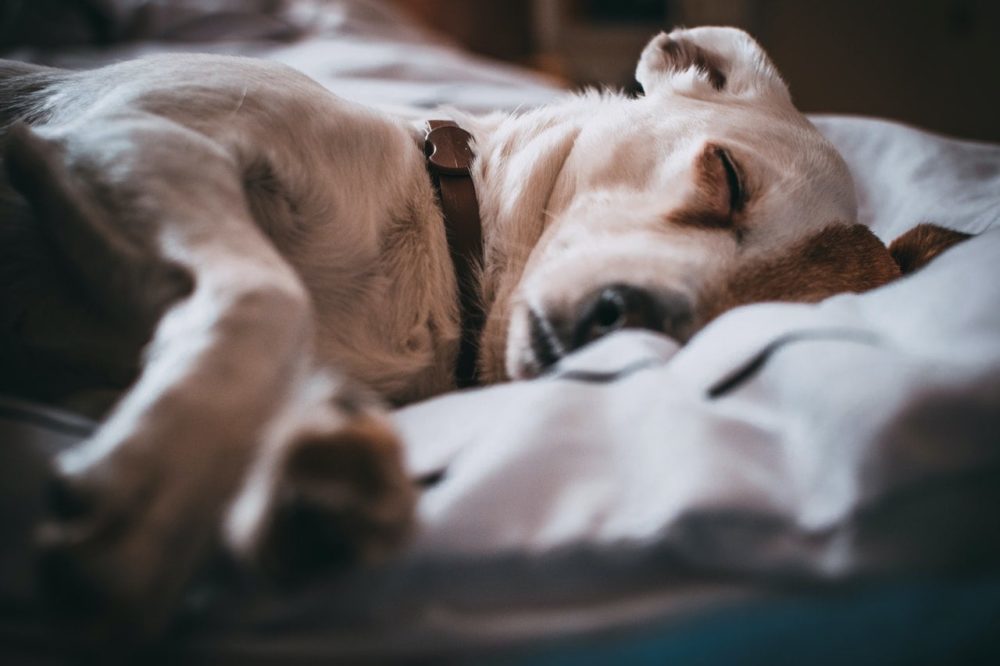
Dogs Have Adapted to Human Sleep Habits
What time do you go to sleep? Do you usually turn all the lights off in your house or leave a lamp on in the hallway?
Chances are, your dog is used to your sleep schedule and has adapted to it accordingly. If you usually sleep with the lights off, your dog is likely more comfortable sleeping in the dark.
Of course, there are always exceptions to the rule, and some dogs may prefer sleeping with a light on. This is usually the case with senior dogs or those that are suffering from anxiety. If your dog seems restless or has trouble sleeping, it might be worth trying to leave a light on for them.
Darkness Signals Rest Time to Dogs
Dogs are creatures of habit, and they like to know what to expect. When the lights go out at night, they understand it’s time to sleep. This is especially true when you’ve established a consistent bedtime routine for your dog.
In addition, nighttime is usually quieter and more peaceful than the daytime. This can be calming for dogs, who are often bombarded with sights and sounds during the day.
All of this is to say that, for most dogs, sleeping in the dark is natural and comfortable. Of course, there are always exceptions, and for some dogs, darkness can be a trigger for anxiety.
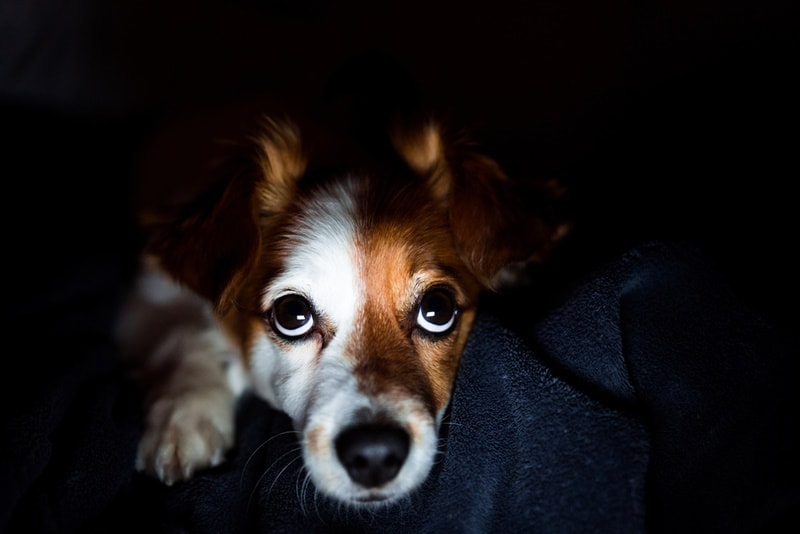
Why Some Dogs Hate Sleeping in the Dark
On the other hand, some humans prefer sleeping with the lights on or with a nightlight in their room. It makes them feel safer and more comfortable. The same is true for some dogs.
Not sure if your dog likes the dark or not? Watch out for these signs that they’re not comfortable sleeping in the dark:
These behaviors can indicate that your dog is anxious about sleeping in the dark. While leaving a light on can help, it’s still important to address the root of the problem.
Here are some reasons behind your dog’s aversion to darkness:
1. Separation Anxiety
Dogs that suffer from separation anxiety often have trouble sleeping when they’re left alone. This can be triggered by the dark since it’s a sign that you’re about to leave them alone.
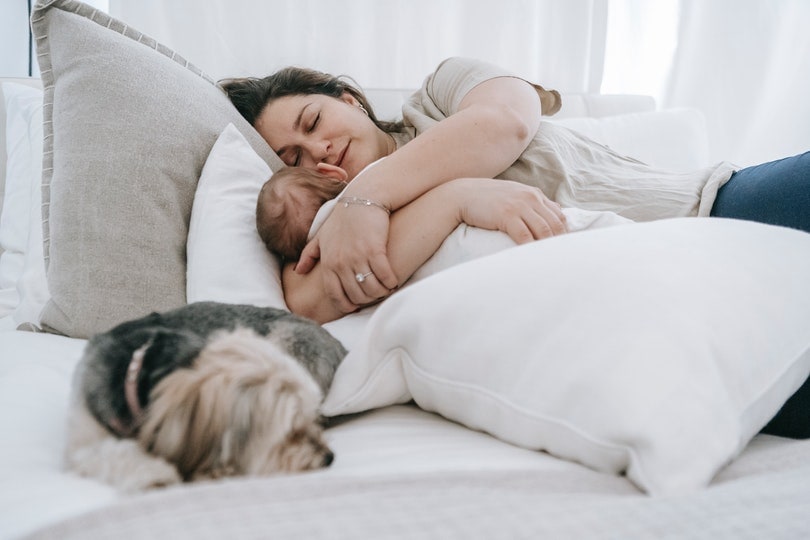
2. Hearing and Vision Issues
Dogs have fantastic nighttime vision. But just like humans, they can experience hearing and vision loss as they grow older. This can make them feel disoriented and scared in the dark. Every little sound can seem amplified, and every shadow can look like a potential threat.
3. Traumatic Experiences
Some dogs may be afraid of the dark because they’ve had a bad experience in the past. Maybe they were left outside in the dark during a storm or got lost in the woods at night.
They may have been forced to sleep in a dark, cramped space like a kennel or crate. If they’re a shelter dog, they may have spent months sleeping in a dark room with no windows.
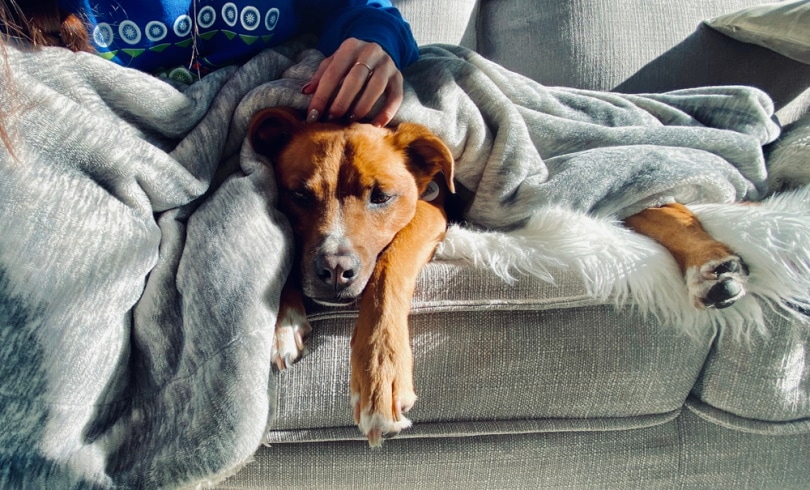
4. Lack of Exposure
If your dog is not used to sleeping in the dark, it will naturally be scary to them. After all, it’s a completely new experience they’re not prepared for.
These experiences can leave dogs feeling scared and anxious in the dark, even in a safe and comfortable home.
How to Help Your Dog Feel Safe in the Dark
A dog’s ability to stay calm in darkness isn’t just a matter of comfort. It’s a matter of safety. If your dog is afraid of the dark, they’re more likely to hurt themselves, try to escape, or become aggressive as they try to protect themselves.
Some situations require a dog to be calm in the dark, such as during a power outage, inside a dark car, or their crate in a plane’s dim cargo hold.
That’s why it’s so important to teach your dog that darkness is okay. Here are some tips to help your dog feel safe when the lights go out:
1. Slowly Introduce Them to Darkness
Don’t make a big deal out of turning the lights off. Instead, start by dimming the lights and gradually making the room darker over time. This will help your dog get used to the change in lighting without feeling overwhelmed.
2. Give Them a Safe Place to Sleep
Associate darkness with comfort by giving your dog a cozy bed or crate to sleep in. This will help them feel safe and secure when the lights are out.
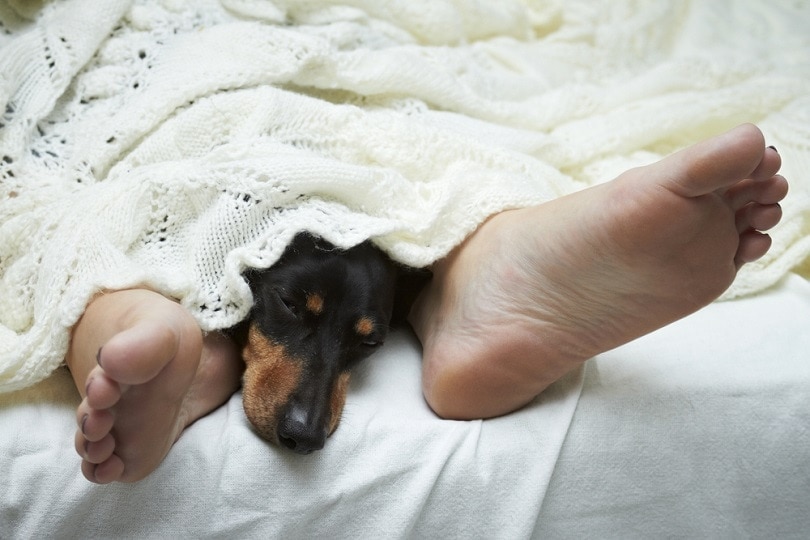
3. Create a Routine
Dogs are creatures of habit, so creating a bedtime routine can help your dog feel calm and relaxed when it’s time for the lights to go out. This can include things like giving them a toy or bone to chew on, turning off the television, and dimming the lights at a certain time each night.
4. Tire Them Out Before Bedtime
A tired dog is a calm dog. Make sure your dog gets plenty of exercise during the day so they’re ready to sleep when it’s time for bed. You may also want to schedule an evening walk or playtime just before lights out.
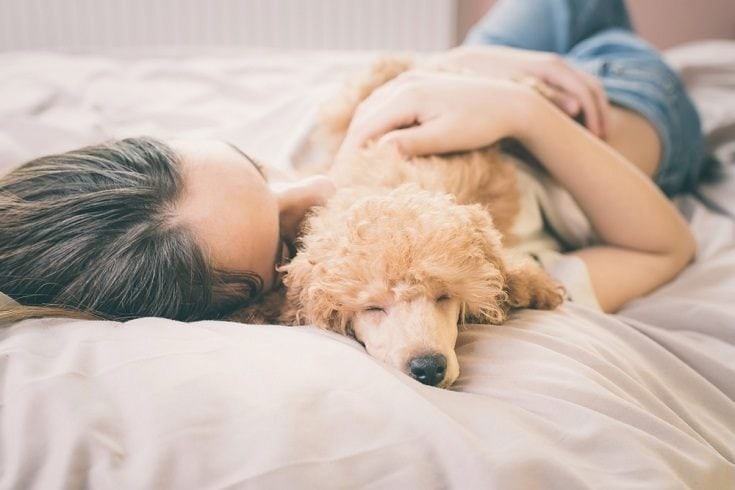
5. Get Their Health Checked
Sometimes, a dog’s aversion to the dark can be caused by an underlying health condition. If your dog is suddenly scared of the dark, it’s a good idea to take them to the vet to rule out any medical issues.
Your vet may also be able to prescribe medication to help your dog feel more comfortable in the dark.
6. Leave a Nightlight On
If nothing else seems to work, you can try leaving a small night light on in your dog’s sleeping area. This will help them see that everything is okay and that they’re not alone in the dark.
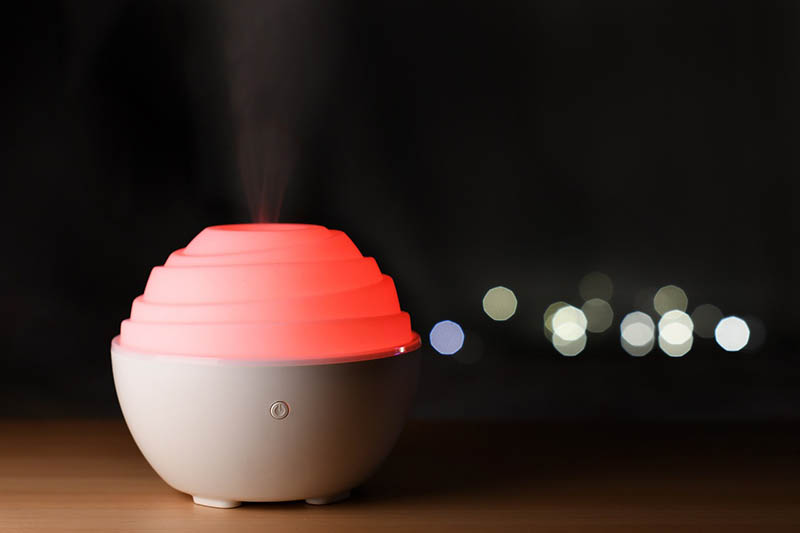
Summing Up
At the end of the day, the most important thing is that your furry friend feels safe and comfortable. That means listening to what they’re telling you and taking the necessary steps to help them feel better, whether that means leaving the lights on or tucking them in before turning the lights off.
See also:
- Why Do Dogs Walk in Circles Before Lying Down? 3 Reasons for This Behavior
- Should Puppies Sleep in the Dark? Facts & FAQ
Featured Image Credit: Daniel Besic, Shutterstock
Contents
- Dogs Are Den Creatures
- Dogs Have Adapted to Human Sleep Habits
- Darkness Signals Rest Time to Dogs
- Why Some Dogs Hate Sleeping in the Dark
- How to Help Your Dog Feel Safe in the Dark
- 1. Slowly Introduce Them to Darkness
- 2. Give Them a Safe Place to Sleep
- 3. Create a Routine
- 4. Tire Them Out Before Bedtime
- 5. Get Their Health Checked
- 6. Leave a Nightlight On
- Summing Up

